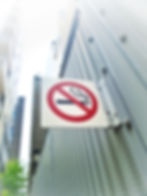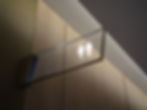|
|
Document Reference Number | 1.2 |
Document Sub-Sections |
|
Issue Number | 1.0 |
Issue Date: | 05/01/2024 |
Last Reviewed Date | 05/01/2024 |
Reviewed by | Board of Directors |
Next Review Date | Annualised 05/01/2025 (Earlier if any significant changes made or required). |
Responsible Officer(s) | Board of Directors |
Distribution |
|
Storage | Stored on the intranet. |
Document Control | Uncontrolled Copy Unless Printed on Yellow Signed Paper or accessed on intranet. |
Amendments with date of amendment. | Nil |
Document Notes | Nil |
Intranet Link | |
Authorised by | Adeel Iqbal |
1.2 PERSONAL HYGIENE POLICY & PROCEDURE
It is a disciplinary offence and a legal food handler requirement to follow Company Rules regarding food safety.
It is a legal requirement to notify employers of a known infectious disease or direct contact with one before starting any work with food.
This policy applies to all areas of the Food Production Facility and the enforcement of this policy is regulalry monitored, documented and audited.
You are required to sign you understand and will adhere to the policies and procedures of FERA Ltd including all of the Personal Hygiene Policy below.
The Personal Hygiene Procedure is an essential aspect of our Food Safety Culture. All staff, visitors, contractors entering the Food Production Unit must agree and abide by all of the rules, regulations and procedures at all times. If clarifications are required, these are to be sought prior to entering the Food Production Unit from the Duty Manager. Additionally, these requirements are to be reviewed on each entry and this Procedure should be monitored regularly for updates and amendments.
1.2.1a PERSONAL HYGIENE POLICY DOCUMENTATION, PROCEDURE AND SIGNED TRAINING
Personal hygiene procedures are documented and can be found below, on the intranet or available on request.
Staff are trained in these procedures by reviewing each aspect at induction, upon completion staff are issued with a certificate valid for 2 years. In addition staff are required to sign that they have understood the Personal Hygiene rules, records of this are stored by the company.
1.2.1b PERSONAL HYGIENE RULES ADHERENCE IS CHECKED AS PART OF A DAILY CHECK LIST AND ADHERENCE IS DOCUMENTED.
Personal hygiene rules adherence is monitored, recorded and check as part of a daily check list. The daily checklist can be found by clicking here. The implementation and observation of adherence to these rules are documented on Production Sheets.
1.2.1c PERSONAL HYGIENE RULES ARE ACCESSIBLE VIA THE INTRANET, AVAILABLE UPON REQUEST AND DISPLAYED IN THE FACILITY.
Personal hygiene rules are accessible via the intranet, available upon request and displayed in the facility.
Procedure Aspect | Your Responsibility | Supporting Information |
Health Declaration for all entrants / visitors / staff. | I confirm:
|  |
Personal Items including jewellery, mobile phones and glasses | Entrants must be aware that personal items of any nature may harbour pathogenic organisms and could also introduce foreign bodies into the food production process; therefore bringing personal items including jewellery is strongly discouraged.
However, if unavoidable
|  |
Medications |
|  |
Nails, Makeup & Perfumes |
|  |
Hair Rules and Regulations |
|     |
Handwashing | Hands must be thoroughly washed:
|  Handwashing Guidance |
Food & Drink |
|   |
Smoking, e-smoking, vaping, alcohol, drugs, etiquette |
|  |
Allergens on Site | Staff and visitors must be aware that the Food Production Facility handles several allergens. These include, but are not limited to peanuts, sesame, tree nuts, milk, gluten and soya. If you are allergic to any of these ingredients you must inform your line manager. It is important to be aware of serious medical reactions to food products and allergens including rashes, itchniess through to life-threatening conditions such as anaphylaxis; information about such reactions can be found here: Food hypersensitivity | Food Standards Agency. External foods, whether brought in, or on your clothing or hands can introduce additional allergens, therefore meticulous hand hygiene, clean clothes and personal protective equipment help control the risk of cross-contamination. |  |
Changing Room Facility & Personal Protective Equipment (PPE) Site Plan for PPE  |
|  PPE Checklist & Order     Access the Clothes Laundering Register Form here: 1.2.2(i) Clothes Laundered Records | INTRANET I Fera |
Visiting the Toilet / Exiting Food Production Areas | The following will apply to any member leaving the food production area including to attend the toilet facilities
|  |
Cuts / Grazes / Plasters |
| |
Returning to work or visiting after an illness or a holiday | If you have been unwell, or have recently (<4 weeks) visited a country outside of the European Union, please complete the health fitness questionnaire which can be found by clicking here. | |
Exceptions |
|  |
1.2.1d MONITORING AND RECORDING THE USE OF BLUE PLASTERS
All cuts and grazes on exposed skin shall be covered by a contrasting business-issued plaster. Business-issued plasters are Blue, waterproof and metal-detectable. Other plasters, including skin-coloured plasters are not permitted in the Food Production Facility.
The issuance of a plaster is to be recorded and monitored in the Blue Plasters Record by the Duty Manager. The details recorded should include the name of the person issuing the plaster, the recipient of the plaster, the time & date and if the plaster has been accounted for at the end of the shift.
Plasters require monitoring so they are traceable in the event of loss during food handling duties. If a visitor, employee or entrant has a plaster prior to entry this should be declared so it can be monitored and accounted for on exit. If plasters are not adequately controlled, they could become lost and contaminate products, lead to complaints or even enforcement action being taken.
Access the Blue Plaster Register Form |
1.2.2a SUITABLE WORK WEAR AND PROTECTIVE CLOTHING INCLUDING HYGIENIC LAUNDRY AND OR PERSONAL PROTECTIVE CLOTHING DISPOSAL.
As protective clothing and attire is required to enter the Food Production Facility, a designated changing facility is provided for all entrants, including staff and visitors.
The location of the changing facility is to prior to all food handling areas. This facility houses safe storage areas, a facility to change into protective clothing which is stored in this area separate from outdoor clothing. This facility is designed to allow secure storage of personal items, outdoor clothing and outdoor footwear.
This facility which is segregated from the food production area helps ensure that food products are not contaminated by contact with unsuitable clothing. The cross-contamination route can either be by direct contact with dirty clothing or by foreign bodies becoming detached from damaged clothing and falling into the product resulting in physical and biochemical hazards.
A changing procedure and a mirror are visible to ensure correct compliance with protective equipment and clothing. Clean protective clothing must be always worn. this includes hair net, (beard snood if required), disposable coat. All external clothing must be fully covered e.g. collars & cuffs must not protrude outside of the protective clothing. Clothing with loose items, external buttons must not be worn to the Food Production Facility.
Ensure soiled clothing does not come into contact with Food Production clothing by using the separate designated hooks, lockers and shelves. Your own clothes should be laundered / washed prior to coming to the Food Production Unit. Any non-disposable business-issued protective clothing is to be left onsite. These items are laundered each month, or earlier if soiled. Changing of clothes should take place only in the changing area and not in the toilet / WC. Hand sanitiser is present in the changing area and on entry to the food production facility.
Access the Clothes Laundering Register Form here: 1.2.2(i) Clothes Laundered Records | INTRANET I Fera
1.2.3 CHANGING FACILITIES AND CHANGING PROCEDURE AND RELATED TRAINING
Changing Room location on site plan |  |
Procedure for changing in and out of Personal Protective Equipment As protective clothing and attire is required to enter the Food Production Facility, a designated changing facility is provided for all entrants, including staff and visitors. The location of the changing facility is to prior to all food handling areas. This facility houses safe storage areas, a facility to change into protective clothing which is stored in this area separate from outdoor clothing. This facility is designed to allow secure storage of personal items, outdoor clothing and outdoor footwear. This facility which is segregated from the food production area helps ensure that food products are not contaminated by contact with unsuitable clothing. The cross-contamination route can either be by direct contact with dirty clothing or by foreign bodies becoming detached from damaged clothing and falling into the product resulting in physical and biochemical hazards. A changing procedure and a mirror are visible to ensure correct compliance with protective equipment and clothing. Clean protective clothing must be always worn. this includes hair net, (beard snood if required), disposable coat. All external clothing must be fully covered e.g. collars & cuffs must not protrude outside of the protective clothing. |   |
Training Records | Training relating to the Personal Hygiene Policy is mandatory for all staff working in the food production unit; training is required and certificates are stored by the company. |
1.2.5 CONSUMPTION OF FOOD AND DRINK
No food and drink to be consumed anywhere in the food production or food storage zones.
Water can be consumed from water-only bottles and this must be in the designated staff area.
Food and drink can be consumed in the staff recreation area or at the external aspect of the premises near the car park. Tasting can take place in the kitchennette area

1.2.6 HAND WASHING REQUIREMENTS AND PROCEDURES
Hands must be thoroughly washed:
When entering and leaving production areas and after handling footwear
After visiting the toilet
After eating, drinking, or smoking
At regular intervals whilst involved in handling different foodstuffs
Between handling different types of food or packaging.
These procedures are documented as part of the Personal Hygiene Procedure. Handwashing and other aspects of the Personal Hygiene Procedure are monitored, observed and recorded as part of the housekeeping checks.
1.2.7 HEALTH SCREENING AND HEALTH STATUS OF ENTRANTS DETERMINATION
Health screening and procedures to establish the health status of food handlers is in place and applies to all visitors, staff and entrants.
Entrants to complete:
Personal Hygiene Policy and Procedure to be signed | |
Health Declaration to be signed. |
Sign to Agree to Policies & Procedures
By signing this form you agree to abide by all the of the rules, regulations, policies and procedures of FERA LTD including the Personal Hygiene Procedure above.Permanent Staff must read and sign this at induction, and review and refresh on each visit to the Food Production Area.Temporary Staff / Visitors / Contractors must read and sign this on every visit, and review and refresh on each visit to the Food Production Area.


